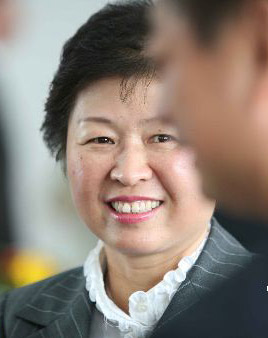'Pro-rich' proposals kindle debate
(Xinhua)
Updated: 2008-03-10 09:09
Updated: 2008-03-10 09:09

Zhang Yin, once ranked as China's richest woman, has ignited a heated debate at the ongoing annual session of the country's top political advisory body with three "pro-rich" proposals.
Some members of the 11th Chinese People's Political Consultative Conference (CPPCC) National Committee have criticized her for her "biased proposals".
One of the proposals of the "paper empress" seeks to amend the Labor Contract Law, which came into effect on Jan 1 this year, to exempt labor-intensive companies from signing permanent contracts with their employees who have worked for more than 10 years.
Her second proposal is to cut the personal income tax on earnings of more than 100,000 yuan ($14,000) a month from 45 to 30 percent.
Her last proposal says the government lift the duty levied on imported environmental remediation facilities for five to seven years.
"She is speaking for herself and people like her," says Shi Dingguo, a political advisor and former deputy head of the school of humanities of the Beijing Language and Culture University.
"She is rich, running a labor-intensive, polluting business that needs to import environmental remediation facilities," Shi says. That's why she has come up with such proposals.
Zhang, 51, is a CPPCC National Committee member and founder and board chairwoman of one of the world's biggest paper makers, Nine Dragons Paper Industries. In 2006, Hurun Report named her as China's richest woman, with a fortune estimated at 27 billion yuan ($3.80 billion).
"She should not have done this," Shi says. "Being a CPPCC National Committee member, she should speak not only for herself, but also for the people."
But Zhang Yichen, another CPPCC member and CEO of CITIC Capital, says it is understandable for a CPPCC National Committee member to submit proposals on familiar topics. "Of course, the question is whether she speaks for herself or the entire industry," he says.
Another CPPCC member Jing Tiankui agreed that a political advisor should have a stronger sense of social responsibility. But, Jing says, it is good for Zhang to speak out and get a feedback. "It means the session is more open and more tolerant."
Ge Jianping, another CPPCC member from the business sector, says he agrees with Zhang on an amendment to the Labor Contract Law. "Companies do feel the pressure after the law was put into force."
As a newcomer to the session, Ge was very comfortable with the atmosphere. "People talk frankly and get into heated discussions at panel meetings, even when officials from the State Council are there."
"First of all, you have to tell the truth to fulfill your duty as a political advisor," says Li Dongyu, an advisor from Shaanxi province. Confrontations have been common at the National People's Congress and CPPCC sessions.